Rising Stars in Data Science

-
Description
The Rising Stars in Data Science workshop, hosted by the University of Chicago in collaboration with the University of California San Diego, focuses on celebrating and fast tracking the careers of exceptional data scientists at a critical inflection point in their career: the transition to postdoctoral scholar, research scientist, industry research position, or tenure track position. Over the first three years of Rising Stars at UChicago, the annual workshop has hosted a total of 91 Rising Stars from nearly 40 institutions. The fourth annual workshop was held in fall 2023. Information about the 2024 program will be posted later this year.
The Rising Stars workshop showcases the exciting, innovative data science initiatives at UChicago and UC San Diego and provides PhD students and postdocs the opportunity to plug into these networks, platforms, and opportunities. The workshop also aims to increase representation and diversity in data science by providing a platform and a supportive mentoring network to navigate academic careers in data science. All graduate students and postdocs, including those who belong to groups underrepresented in data science, are encouraged to apply, including but not limited to people of all racial, ethnic, geographic, and socioeconomic backgrounds, sexual orientations, genders, and persons with disabilities.
The two-day workshop will feature career and research panels, networking and mentoring opportunities, and research talks from the Rising Stars. Participants will gain insights from faculty panels on career development questions such as: how to start your academic career in data science; how to strategically sustain your career through research collaborations, publications, and skill development; and how to form meaningful interdisciplinary collaborations in data science with industry and government partners. Participants will also hear inspiring keynote talks from established, cutting-edge leaders in data science.
Eligibility & Guidelines
If you have any questions about your eligibility, please send an email to data-science@uchicago.edu.
- Applicants must be full time graduate students within 1-2 years of obtaining a PhD, or a current postdoctoral scholar, fellow, or researcher.
- We welcome applicants from a wide variety of fields and backgrounds: any eligible PhD or postdoc who is engaging in rigorous, data-driven inquiry is encouraged to apply.
- Applicants from all institutions, including but not limited to the University of Chicago and the University of California San Diego, are encouraged to apply.
- Applicants may only submit one application.
- Applicants may have nominations from a maximum of 2 faculty members or advisors.
Workshop Format
- Rising Star research talks
- Panels (career development, data science research)
- Keynote address
- 1:1 meetings with faculty members
- Networking within the UChicago and UC San Diego data science ecosystems
-
Application
Applications for the 2023 program were due Friday, September 22.
The application is available through InfoReady. If you have not previously used InfoReady, you will be required to create an account in order to submit your application.
- Resume/CV
- Biography (100 words)
- Research keywords
- Research talk title
- Research talk abstract (250 words)
- Research statement outlining research goals, potential projects of interest, and long-term career goals (2 pg, standard font at a size 11 or larger)
- Recommendations indicating support from at least 1-2 faculty members or advisors
- UChicago and UC San Diego are committed to broadening participation in the field of data science. In a 300-word statement, please share the experiences, values, and contributions to the field that demonstrate your interest in, or commitment to creating a more diverse and inclusive scientific community. (300 words)
-
Committee and Mentors
Faculty Committee
-
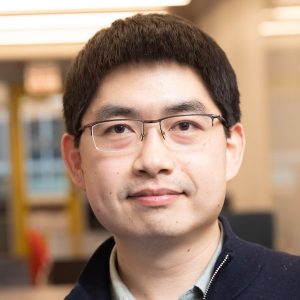
Yuxin Chen
Assistant Professor, Computer Science; Member: Committee on Computational and Applied Mathematics (CCAM) -

Michael J. Franklin
Morton D. Hull Distinguished Service Professor; Senior Advisor to the Provost for Computing and Data Science; Faculty Co-Director, Data Science Institute -

Yuehaw Khoo
Assistant Professor, Department of Statistics; Member, Committee on Computational and Applied Mathematics (CCAM) -
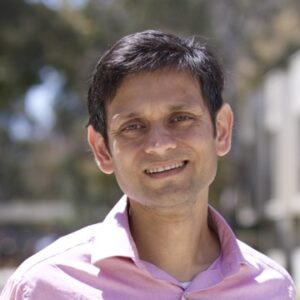
Arya Mazumdar
Associate Professor, Halıcıoğlu Data Science Institute, UC San Diego -
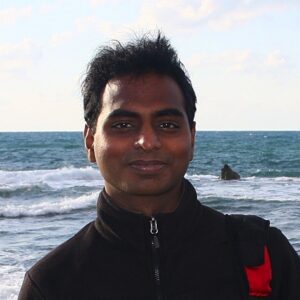
Raghu Meka
Associate Professor, Computer Science, University of California Los Angeles -

Gal Mishne
Assistant Professor, Halıcıoğlu Data Science Institute, UC San Diego -
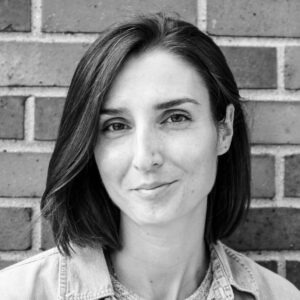
Molly Offer-Westort
Assistant Professor, Department of Political Science -
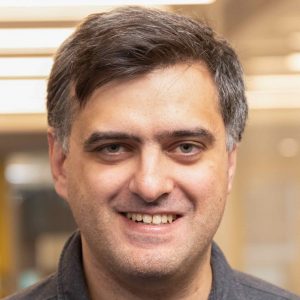
Lorenzo Orecchia
Assistant Professor, Computer Science -
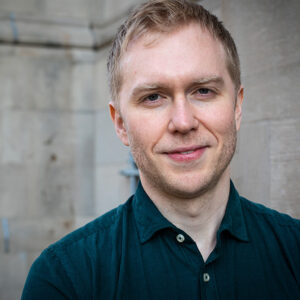
Aaron Schein
Assistant Professor of Statistics and Data Science -
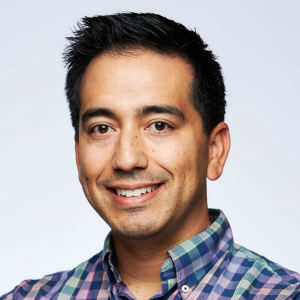
David Uminsky (he/him)
Executive Director, Data Science Institute; Senior Research Associate, Department of Computer Science -

Lily Weng
Assistant Professor, Halıcıoğlu Data Science Institute, UC San Diego -
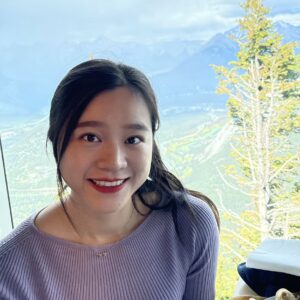
Yuhua Zhu
Assistant Professor, Halıcıoğlu Data Science Institute and Department of Mathematics, UC San Diego
Yuxin Chen is an assistant professor at the Department of Computer Science at the University of Chicago. Previously, he was a postdoctoral scholar in Computing and Mathematical Sciences at Caltech, hosted by Prof. Yisong Yue. He received my Ph.D. degree in Computer Science from ETH Zurich, under the supervision of Prof. Andreas Krause. He is a recipient of the PIMCO Postdoctoral Fellowship in Computing and Mathematical Sciences, a Swiss National Science Foundation Early Postdoc.Mobility fellowship, and a Google European Doctoral Fellowship in Interactive Machine Learning.
His research interest lies broadly in probabilistic reasoning and machine learning. He is currently working on developing interactive machine learning systems that involve active learning, sequential decision making, interpretable models and machine teaching. You can find more information in my Google scholar profile.
Michael J. Franklin is the inaugural holder of the Liew Family Chair of Computer Science. An authority on databases, data analytics, data management and distributed systems, he also serves as senior advisor to the provost on computation and data science.
Previously, Franklin was the Thomas M. Siebel Professor of Computer Science and chair of the Computer Science Division of the Department of Electrical Engineering and Computer Sciences at the University of California, Berkeley. There, he co-founded Berkeley’s Algorithms, Machines and People Laboratory (AMPLab), a leading academic big data analytics research center. The AMPLab won a National Science Foundation CISE “Expeditions in Computing” award, which was announced as part of the White House Big Data Research initiative in March 2012, and received support from over 30 industrial sponsors. AMPLab created industry-changing open source Big Data software including Apache Spark and BDAS, the Berkeley Data Analytics Stack. At Berkeley, he also served as an executive committee member for the Berkeley Institute for Data Science, a campus-wide initiative to advance data science environments.
An energetic entrepreneur in addition to his academic work, Franklin founded and became chief technology officer of Truviso, a data analytics company acquired by Cisco Systems. He serves on the technical advisory boards of various data-driven technology companies and organizations.
Franklin is a Fellow of the Association for Computing Machinery and a two-time recipient of the ACM SIGMOD (Special Interest Group on Management of Data) “Test of Time” award. His many other honors include the outstanding advisor award from Berkeley’s Computer Science Graduate Student Association. He received the Ph.D. in Computer Science from the University of Wisconsin in 1993, a Master of Software Engineering from the Wang Institute of Graduate Studies in 1986, and the B.S. in Computer and Information Science from the University of Massachusetts in 1983.
I’m an assistant professor at the Department of Statistics at University of Chicago. I am also a member of Committee on Computational and Applied Mathematics (CCAM). I am interested in computational problems in structural biology and quantum many-body physics. I was extremely fortunate to have Amit Singer at Princeton as my Ph.D. adviser during 2012-2016, Lexing Ying at Stanford as my post-doc mentor during 2016-2019, and Phuan Ong at Princeton supervising my master thesis in experimental physics during 2010-2012.
Arya Mazumdar is an Associate Professor in UC San Diego. Arya obtained his Ph.D. degree from University of Maryland, College Park specializing in information theory. Subsequently Arya was a postdoctoral scholar at Massachusetts Institute of Technology, an assistant professor in University of Minnesota, and an assistant followed by associate professor in University of Massachusetts Amherst. He has also been a research scientist at Amazon AI/Search. Arya is a recipient of a Distinguished Dissertation Award for his Ph.D. thesis, the NSF CAREER award, an EURASIP Best Paper Award, and the ISIT Jack K. Wolf Student Pape
r Award. He is also a Distinguished Lecturer of the IEEE Information Theory Society, 2023-24. He is currently serving as an Associate Editor for the IEEE Transactions on Information Theory and as an Area editor for Now Publishers Foundation and Trends in Communication and Information Theory. Arya’s research interests include coding theory, information theory, statistical learning and distributed optimization. I got my PhD at UT Austin under the (wise) guidance of David Zuckerman in 2011. After that I spent two wonderful years in Princeton as a postdoctoral fellow at the Institute for Advanced Study with Avi Wigderson and at DIMACS, Rutgers. After that I spent an enjoyable year as a researcher at Microsoft Research, Silicon Valley Lab. I had a great time on sabbatical visiting the MIT math department from 2018-2020.
Gal Mishne is an assistant professor in the Halıcıoğlu Data Science Institute (HDSI) at UC San Diego, and affiliated with the ECE department, the CSE department and the Neurosciences Graduate program. Her research interests include high-dimensional data analysis, geometric representation learning, image processing and computational neuroscience. Before joining UCSD, Dr. Mishne was a Gibbs Assistant Professor in the Applied Math program at Yale University, with Prof. Ronald Coifman’s research group. She completed her PhD in 2017 at the Technion at the Faculty of Electrical Engineering under the supervision of Prof. Israel Cohen. She holds B.Sc. degrees (summa cum laude) in Electrical Engineering and Physics from the Technion, and upon graduation worked as an image processing engineer for several years. Dr. Mishne is a 2017 Rising Star in EECS and Emerging Scholar in Science.
I am an Assistant Professor in the Department of Political Science at The University of Chicago.
I work on quantitative methodology for social science research, with a focus on causal inference, machine learning, and experimental design–particularly for adaptive experiments. My PhD is from Yale, joint in Political Science and Statistics & Data Science.
Previously, I was a post-doctoral fellow in Susan Athey’s Golub Capital Social Impact Lab at the Stanford Graduate School of Business.
In addition to the PhD, I hold a Masters in Statistics, also from Yale, and a Masters in Public Affairs, from the Princeton School of Public and International Affairs. My undergraduate degree was in cultural anthropology from Grinnell College; after college, I spent a year in Lesotho, teaching high school students, and two years in Madagascar, as a Peace Corps volunteer.
Lorenzo Orecchia is an assistant professor in the Department of Computer Science. His research focuses on applying mathematical techniques from discrete and continuous optimization to design algorithms for computational challenges arising in a variety of applications, including Machine Learning, Numerical Analysis and Combinatorial Optimization.
Aaron is an Assistant Professor in the Statistics Department and Data Science Institute at UChicago. His research develops methodology in Bayesian statistics, causal inference, and machine learning for applied problems in political science, economics, and genetics, among other fields. Prior to joining UChicago, Aaron was a postdoctoral fellow in the Data Science Institute at Columbia University. He received his PhD in Computer Science from UMass Amherst, as well as an MA in Linguistics and a BA in Political Science. He is on Twitter @AaronSchein.
David Uminsky joined the University of Chicago in September 2020 as a senior research associate and Executive Director of Data Science. He was previously an associate professor of Mathematics and Executive Director of the Data Institute at University of San Francisco (USF). His research interests are in machine learning, signal processing, pattern formation, and dynamical systems. David is an associate editor of the Harvard Data Science Review. He was selected in 2015 by the National Academy of Sciences as a Kavli Frontiers of Science Fellow. He is also the founding Director of the BS in Data Science at USF and served as Director of the MS in Data Science program from 2014-2019. During the summer of 2018, David served as the Director of Research for the Mathematical Science Research Institute Undergrad Program on the topic of Mathematical Data Science.
Before joining USF he was a combined NSF and UC President’s Fellow at UCLA, where he was awarded the Chancellor’s Award for outstanding postdoctoral research. He holds a Ph.D. in Mathematics from Boston University and a BS in Mathematics from Harvey Mudd College.
Lily Weng is an Assistant Professor in the Halıcıoğlu Data Science Institute at UC San Diego. She received her PhD in Electrical Engineering and Computer Sciences (EECS) from MIT in August 2020, and her Bachelor and Master degree both in Electrical Engineering at National Taiwan University. Her research interest is in machine learning and deep learning, with primary focus on trustworthy AI. Her vision is to make the next generation AI systems and deep learning algorithms more robust, reliable, explainable, trustworthy and safer.Yuhua Zhu is an assistant professor at UC San Diego, where she holds a joint appointment in the Halicioğlu Data Science Institute (HDSI) and the Department of Mathematics. Previously, she was a Postdoctoral Fellow at Stanford University, and received her Ph.D. from UW-Madison. Her work builds the bridge between differential equations and machine learning, spanning the areas of reinforcement learning, stochastic optimization, sequential decision-making, and uncertainty quantification.Selected Mentors
-
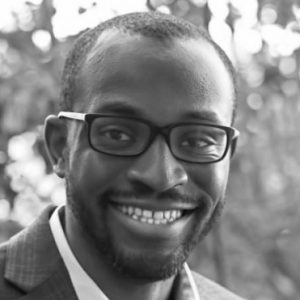
Chibueze Amanchukwu
Neubauer Family Assistant Professor, Pritzker School of Molecular Engineering -
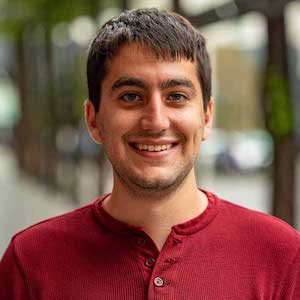
Aloni Cohen
Assistant Professor of Computer Science and Data Science -
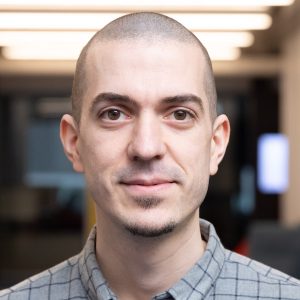
Raul Castro Fernandez
Assistant Professor, Computer Science -

Alexander Cloninger
Associate Professor, Department of Mathematics and Halıcıoğlu Data Science Institute, UC San Diego -
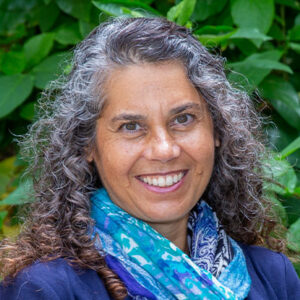
Virginia De Sa
Associate Director, Halıcıoğlu Data Science Institute (HDSI); Professor, Cognitive Science, UC San Diego -
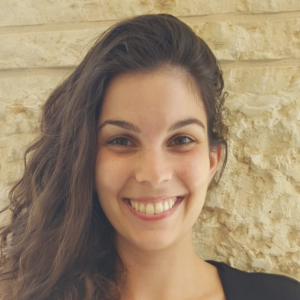
Rana Hanocka
Assistant Professor, Computer Science -
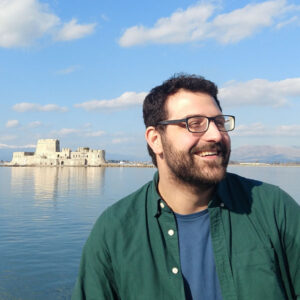
Nikolaos (Nikos) Ignatiadis
Assistant Professor of Statistics and Data Science -
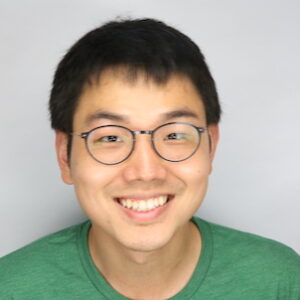
Haojian Jin
Assistant Professor, Halıcıoğlu Data Science Institute, UC San Diego -
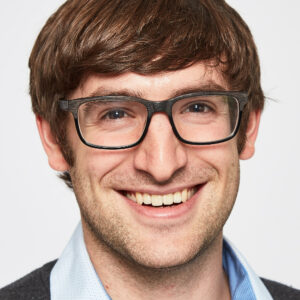
Alex Kale
Assistant Professor of Computer Science and Data Science -
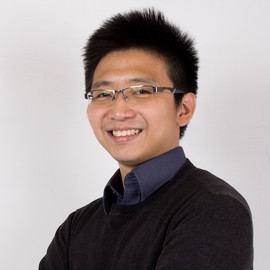
Yuan Chang Leong
Assistant Professor, Department of Psychology -
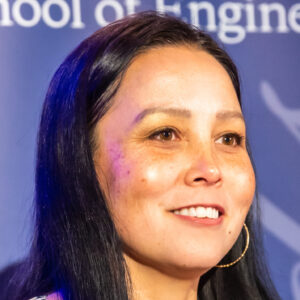
Kristian Lum
Visiting Scientist -
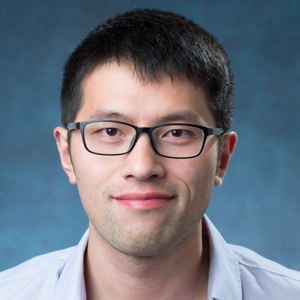
Chenhao Tan
Assistant Professor of Computer Science and Data Science -
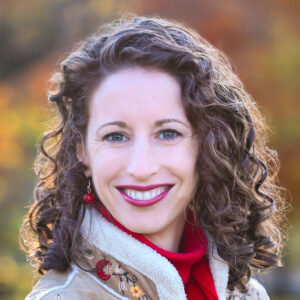
Rebecca Willett
Faculty Director of AI, Data Science Institute; Professor, Statistics, Computer Science, and the College -
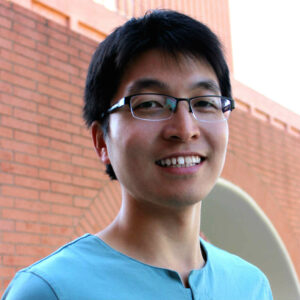
Haifeng Xu
Assistant Professor of Computer Science and Data Science -
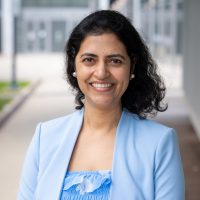
Barna Saha
E Guber Endowed Chair Associate Professor, Computer Science and Engineering & Halıcıoğlu Data Science Institute, UC San Diego; Director, EnCORE, UC San Diego
Chibueze Amanchukwu is a Neubauer Family Assistant Professor in the Pritzker School of Molecular Engineering at the University of Chicago and holds a joint appointment at Argonne National Laboratory. His research is focused on enabling long duration electrical (batteries) and chemical energy storage for a sustainable energy future. His team is especially interested in modifying electrolyte and ion solvation behavior to control electrochemical processes occurring in batteries and electrocatalytic transformations such as carbon dioxide capture and conversion. They couple data science, computation, synthesis, and characterization to holistically understand ion transport in electrolytes and control interfacial reactions for efficient and cheap long duration storage. His work has been recognized with the NSF CAREER Award, DOE Early Career Award, ECS-Toyota Young Investigator Fellowship, CIFAR Azrieli Global Scholar Award, and the 3M Nontenured Faculty Award. He obtained his PhD in chemical engineering as a NDSEG Fellow at MIT and was a TomKat Center Postdoctoral Fellow at Stanford University.Aloni Cohen is an Assistant Professor of Computer Science and Data Science at the University of Chicago. Previously, he was a Postdoctoral Associate at Boston University, with a joint appointment at the Hariri Institute for Computing and the School of Law. Cohen’s research explores the interplay between theoretical cryptography, privacy, law, and policy. Through his work, Cohen aims to understand and resolve the tensions between the theory of cryptography and the privacy and surveillance law that governs its eventual real-world context. Cohen earned his PhD in electrical engineering and computer science at MIT where he was advised by Shafi Goldwasser and supported by a Facebook Fellowship and an NSF Graduate Student Fellowship. Cohen is a former affiliate at the Berkman Klein Center for Internet & Society and a Fellow at the Aspen Tech Policy Hub.
Raul Castro Fernandez is an Assistant Professor of Computer Science at the University of Chicago. In his research he builds systems for discovering, preparing, and processing data. The goal of his research is to understand and exploit the value of data. He often uses techniques from data management, statistics, and machine learning. His main effort these days is on building platforms to support markets of data. This is part of a larger research effort on understanding the Economics of Data. He’s part of ChiData, the data systems research group at The University of Chicago.
Alex Cloninger is an Associate Professor in the Department of Mathematics and the Halıcıoğlu Data Science Institute at UC San Diego. He researches problems in the area of geometric data analysis and applied harmonic analysis, with a focus on approaches that model the data as being locally lower dimensional, including data concentrated near manifolds or subspaces. These types of problems arise in a number of scientific disciplines, including imaging, medicine, and artificial intelligence, and the techniques developed relate to a number of machine learning and statistical algorithms, including deep learning, network analysis, and measuring distances between probability distributions.
Alex received his PhD in Applied Mathematics and Scientific Computation from the University of Maryland in 2014 (advisers: John Benedetto, Wojciech Czaja), and was then an NSF Postdoc and Gibbs Assistant Professor of Mathematics at Yale University (adviser: Raphy Coifman). He joined UCSD in 2017.
Associate Director de Sa is a leader in the fields of cognitive science, neuroscience, computer science, engineering, and data science. Her research utilizes multiple approaches to increase our understanding of how humans and machines learn to perceive the world around them.
She earned her Ph.D. and master’s in Computer Science from the University of Rochester, and a bachelor’s degree in Mathematics and Engineering from Canada’s Queen’s University.
I am an Assistant Professor of Computer Science at the University of Chicago. I founded and direct 3DL (threedle! ), a group of enthusiastic researchers passionate about 3D, machine learning, and visual computing. I obtained my Ph.D. in 2021 from Tel Aviv University under the supervision of Daniel Cohen-Or and Raja Giryes.
My research is focused on building artificial intelligence for 3D data, spanning the fields of computer graphics, machine learning, and computer vision. Deep learning, the most popular form of artificial intelligence, has unlocked remarkable success on structured data (such as text, images, and video), and I am interested in harnessing the potential of these techniques to enable effective operation on unstructured 3D geometric data.
We have developed a convolutional neural network designed specifically for meshes, and also explored how to learn from the internal data within a single shape (for surface reconstruction, geometric texture synthesis, and point cloud consolidation) – and I am interested in broader applications related to these areas. Additional research directions that I am aiming to explore include: intertwining human and machine-based creativity to advance our capabilities in 3D shape modeling and animation; learning with less supervision, for example to extract patterns and relationships from large shape collections; and making 3D neural networks more “interpretable/explainable”.
Nikos is an Assistant Professor in the Statistics Department and Data Science Institute at UChicago. He is interested in empirical Bayes methods, causal inference, multiple testing and statistical analysis in the presence of contextual side information, and his research often draws upon nonparametrics and convex optimization.
Alex Kale is an Assistant Professor in Computer Science and the Data Science Institute at the University of Chicago. He earned his PhD in Information Science at the University of Washington in 2022.
Before coming to University of Chicago, Alex held a visiting research position at Northwestern University from 2020 through 2022. He earned a Master’s of Science in Information Science from the University of Washington in 2020 and a Bachelor’s of Science in Psychology, with minors in Music and Philosophy, also from the University of Washington in 2015.
Alex leads the Data Cognition Lab at the University of Chicago, focused on creating data visualization and analysis software that explicitly represents users’ cognitive processes around data.
Research Focus Areas: Human Computer Interaction, Data Visualization
Alex Kale researches data visualization and human-computer interaction. He creates and investigates software tools for helping people reason with data and statistical models, especially in situations involving uncertainty. His work seeks to augment human statistical reasoning by providing new ways to interact with data and software tools that more explicitly represent the choices, rationales, values, caveats, and assumptions that underlie data analysis. Current interests include data exploration, model interpretability, causal inference, decision making, fairness, and uncertainty visualization.My research examines the different ways in which goals, desires and needs affect how people perceive and respond to our environment. My work draws from the traditions of cognitive neuroscience, social psychology and affective science. I use a broad range of methodological tools, including behavioral experiments, computational modeling, fMRI, pupillometry, naturalistic paradigms and network analyses. By combining different tools and perspectives, I seek to characterize motivational influences on human cognition at the psychological, computational and neural levels. One ultimate goal of this work is to identify behavioral and neural targets of intervention to improve socio-cognitive functioning.
I direct the Motivation and Cognition Neuroscience Laboratory at the University of Chicago.
Kristian is currently a Research Scientist at Google’s DeepMind. She was previously named a National Academy of Science Kavli Fellow in 2022. She was also recognized by the Committee of Presidents of Statistical Societies with the Emerging Leader in Statistics Award (2022). She is a founding member of the Executive Committee of ACM conference on Fairness, Accountability, and Transparency (FAccT) — the premier venue for work on the societal impacts of algorithmic systems. Kristian brings a unique and critically valuable research experience across academic, nonprofit and industry settings. Most recently she was a Senior Staff Machine Learning Researcher on the ML Ethics, Transparency and Accountability Team at Twitter. Prior to taking a role in industry, she held academic positions including as an Assistant Research Professor at the University of Pennsylvania, Department of Computer and Information Science and as an Assistant Research Professor at Virginia Tech. Kristian has also served as the Lead Statistician for the Human Rights Data Analysis Group where she advised New York City’s Mayor’s Office of Criminal Justice and Philadelphia’s First Judicial District on how to create algorithmic tools that better embody notions of fairness.
Chenhao Tan is an assistant professor at the Department of Computer Science and the UChicago Data Science Institute. His main research interests include language and social dynamics, human-centered machine learning, and multi-community engagement. He is also broadly interested in computational social science, natural language processing, and artificial intelligence.
Rebecca Willett is a Professor of Statistics and Computer Science at the University of Chicago. She completed her PhD in Electrical and Computer Engineering at Rice University in 2005 and was an Assistant then tenured Associate Professor of Electrical and Computer Engineering at Duke University from 2005 to 2013. She was an Associate Professor of Electrical and Computer Engineering, Harvey D. Spangler Faculty Scholar, and Fellow of the Wisconsin Institutes for Discovery at the University of Wisconsin-Madison from 2013 to 2018. Prof. Willett received the National Science Foundation CAREER Award in 2007, was a member of the DARPA Computer Science Study Group 2007-2011, and received an Air Force Office of Scientific Research Young Investigator Program award in 2010. Prof. Willett has also held visiting researcher positions at the Institute for Pure and Applied Mathematics at UCLA in 2004, the University of Wisconsin-Madison 2003-2005, the French National Institute for Research in Computer Science and Control (INRIA) in 2003, and the Applied Science Research and Development Laboratory at GE Medical Systems (now GE Healthcare) in 2002. Her research interests include network and imaging science with applications in medical imaging, wireless sensor networks, astronomy, and social networks. She is also an instructor for FEMMES (Females Excelling More in Math Engineering and Science; news article here) and a local exhibit leader for Sally Ride Festivals. She was a recipient of the National Science Foundation Graduate Research Fellowship, the Rice University Presidential Scholarship, the Society of Women Engineers Caterpillar Scholarship, and the Angier B. Duke Memorial Scholarship.
Haifeng Xu is an assistant professor in the Department of Computer Science and the Data Science Institute at UChicago. He directs the Strategic IntelliGence for Machine Agents (SIGMA) research lab which focuses on designing algorithms/systems that can effectively elicit, process and exploit information, particularly in strategic environments. Haifeng has published extensively at leading venues in computational economics, machine learning and theoretical computer science, such as EC, ICML, NeurIPS, STOC and SODA. His research has been recognized by a few awards, including the IJCAI Early Career Spotlight, Google Faculty Research Award, ACM SIGecom Dissertation Award (honorable mention), IFAAMAS Victor Lesser Distinguished Dissertation Award (runner-up), and a few best paper awards.
The following research themes are the recent focus of Haifeng’s research lab. More details can be found at his lab website.
The economics of data and machine learning, such as acquiring/eliciting/selling/exploiting information and data
Machine learning in non-cooperative multi-agent environments under information asymmetry, incentive conflicts, and deception
Algorithmic foundations and applications of optimal information design
Barna Saha is the E Guber Endowed Chair Associate Professor of UCSD CSE and HDSI. Before joining UCSD, she was an Associate Professor at UC Berkeley. Saha’s primary research focus is on Theoretical Computer Science, specifically Algorithm Design. She is passionate about diversity and teaching, and seeing students succeed from all backgrounds. She is a recipient of the Presidential Early Career Award (PECASE)- the highest honor given by the White House to early career scientists, a Sloan fellowship, an NSF CAREER Award, and multiple paper awards.
-
-
FAQ
Any questions regarding the application or the workshop can be directed to data-science@uchicago.edu.
-
Application
-
When is the application due?
The student application is due Friday, September 22nd by 11:59pm CT. Letters of recommendation are due with the application. 1 letter of recommendation is required, and you can provide up to 2. Recommenders can submit their letters of recommendation through our online application system and specific instructions are available through the application website. If recommenders have any issue submitting their letters via the InfoReady application interface, they can email as a PDF attachment to mrlong@uchicago.edu.
-
Where can I apply?
The application is available here through InfoReady. If you have not previously used InfoReady, you will be required to create an account in order to submit your application.
-
How many recommendations can I receive?
You must request at least one letter of recommendation, and no more than two.
-
Who can I request a recommendation from?
You are encouraged to request a letter of recommendation from a faculty member or advisor who can speak first-hand to your research and academic strengths and qualifications for the program.
-
Where do faculty submit recommendations?
Your requested ‘recommender’ can submit their letter through the InfoReady system; the application provides a template email that you can edit and automatically generate to the person you’ve requested a letter from.
-
Can the research statement include references?
Yes, your research statement can include references. References are allowed to run onto an additional third page beyond the two-page limit for the statement.
-
When is the application due?
-
Eligibility
-
Do I have to be in a data science program (PhD or postdoc) to apply?
We do not require that applicants are currently in a data science program to apply. However, applicants should be pursuing doctoral degrees or postdocs in computer science, statistics, computational and applied math, data science, or a related computational field.
-
Who can apply?
Applicants must be full time graduate students within ~1-2 years of obtaining a PhD, or a current postdoctoral scholar, fellow, or researcher. If you have any questions about your eligibility, please feel free to send an email to data-science@uchicago.edu.
-
Do I have to be in a data science program (PhD or postdoc) to apply?
-
Workshop Details
-
Is travel funding available?
Yes, we offer a travel stipend of up to $1000, reimbursable after the workshop.
-
When will the workshop agenda be available?
The workshop agenda will be available in October.
-
Who is the audience for the student research talks?
The primary audience for the student research talks are the Rising Stars Committee and PhD students, researchers, faculty, and staff in the data science ecosystems at UChicago and UC San Diego. Certain panels and workshop events will be open to the public. Registration for the event will open in October.
-
What should the research talk cover?
The research talk should highlight your research interests in data science and computing, and ideally showcase your unique approaches to the nascent field as it takes shape.
-
Do I need to cover established research in my talk, or can it cover early-stage projects?
Your talk can use research work that is either early-stage or published, so long as you are confident that it appropriately and best showcases your research methodology and approaches.
-
Is travel funding available?
-
Application